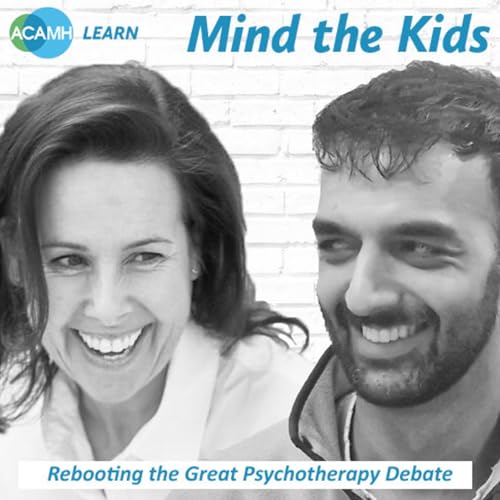
S4 Ep1: Mind the Kids - Rebooting the Great Psychotherapy Debate
Échec de l'ajout au panier.
Veuillez réessayer plus tard
Échec de l'ajout à la liste d'envies.
Veuillez réessayer plus tard
Échec de la suppression de la liste d’envies.
Veuillez réessayer plus tard
Échec du suivi du balado
Ne plus suivre le balado a échoué
-
Narrateur(s):
-
Auteur(s):
À propos de cet audio
Drawing from the landmark IMPACT trial (the largest UK study of its kind with 465 participants), Professor Goodyer reveals surprising insights that challenge decades of therapeutic orthodoxy. Using cutting-edge network analysis, his team discovered that the key drivers of recovery aren't what therapists predicted—they're fatigue and insomnia, not the psychological symptoms clinicians typically focus on.
What You'll Learn
- The Common Factors Debate: Why CBT, psychoanalytic therapy, and brief psychosocial intervention showed no significant differences in outcomes
- The Speed of Recovery: Why most young people improved faster than any therapy manual predicted (often in just 6-12 sessions instead of 20-30)
- Network Science Meets Mental Health: How symptoms influence each other over time—and why this changes everything about diagnosis and treatment
- The Sleep Connection: Why addressing fatigue and insomnia might be more crucial than we realized for adolescent depression
- The Role of Time: Why recovery continues for 12 months after therapy ends, with remarkably low relapse rates
This isn't just an academic debate. These findings have profound implications for:
- Clinicians: Rethinking assessment priorities and treatment planning
- Trainees: Understanding what really drives therapeutic change
- Researchers: Opening new avenues for investigating mental health interventions
- Policy makers: Allocating resources more effectively in child and adolescent mental health services
From the JCPP paper ‘Dynamics of depression symptoms in adolescents during three types of psychotherapy and post-treatment follow-up’
Madison Aitken, Sharon A.S. Neufeld, Clement Ma, IMPACT Consortium, Ian M. Goodyer
https://doi.org/10.1111/jcpp.14175
Pas encore de commentaire


